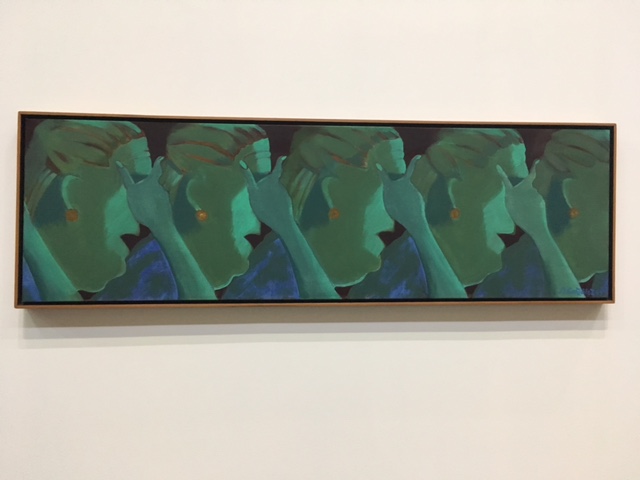I went to Bordeaux this week, because it was an obvious location to talk about my book.
Bordeaux is in a "twin city" partnership with Bristol (and Hannover, but...) and the two cities share the same history. South-Western ports of wanna-be empires, they played a major role in the colonisation of America and in the slave trade, activities that had a major impact on them, resulting in beautiful buildings constructed by money resulted from the deportation and trade of human beings.
Slavery is not an activity of the past, as the recent events in Libya exposed once again. Poverty neither and most of the poor people in this world live and work in a state of quasi-slavery.
But I also wrote this book also to talk about social change, places and people who decided to stop mistakes when they realize they were, to talk about cultures merging, art and music that came to display a different society, more diverse and more inclusive.
-
The local group Bordeaux 2020 invited me to talk about underground culture and to share the details about Bristol's recent history for the arts and music.
Here were the participants:
- Damien Thomas, Bordeaux 2020
- Renaud Cojo, theatre performer and founder of the company 'Ouvre le Chien'
- Ivan Torres, mexican artist
- Pierre Chavot, historian and author
- Philippe Barre, founder of Darwin
- and myself
I was happily surprised by the level of involvement of the audience. It was from the beginning a very participative discussion. And while a couple of men insisted to say that Bordeaux has a vibrant underground scene for music, in informal venues and inside people's homes, most people were interested in how Bordeaux could come to bring more venues and help young people particularly to develop their ideas and find places to rehearse music or theatre.
Our goal is to keep moving into this discussion.
My goal specifically is to create a network of cities discussion the importance of the arts and music for European culture and with the current changes, especially after the Brexit vote and the (illegal) Catalan referendum.
I believe that in times of a globalisation led by trade and goods, people can only keep on acting if they learn to act locally and fight for changes that they can see developing in a not-so-long future. I also believe that in the rise of new forms of nationalism, we need to connect with others, as far as possible, to realize how much connected we are, as different as we are.
I want to start within Europe for now. So I hope we'll have another debate, in Paris maybe, including people from the art world and historians from Belfast, Brussels, Barcelona, on top of Bordeaux and Bristol.
I call this my network of "Cities to B" - trying to Build Bridges!
-
I'm invited in Nantes mid-January to talk about Bristol's art and music scene, then in Paris' Médiathèque, on January 13th, to discuss the role of music in social change in the framework of the exhibition "Nous et les autres" ("Us and Others"), highlighting the increase of creativity brought in cities by newcomers and foreigners over the years, but also displaying the racism these artists were confronted to during their lifetime, quoting the work of Josephine Baker, Nina Simone, Miriam Makeba, Zebda in France and La Rumeur, among others. I'll bring the story of Bristolians.
-
Share your views if you will!
-
Meanwhile, I was lucky enough to catch a beautiful retrospective in the Museum of Contemporary Art in Bordeaux, of the work of Colombian painter Beatriz Gonzalez, opened as begins the Year of France / Colombia. Her painting are a real immersion in the intimacy of the people of her country, their sufferance and especially female pain, in a transmuting act of healing...
I'll share more in the next post.
This has been my main theme since 2014, since I lived in the shattered country of Central African Republic. We can not let ourselves, individually or collectively, get destroyed by our pain and past mistakes. We need to rise again and learn to heal ourselves, to let go of the burden and past wounds...
Healing, guérison en français, art therapy, catharsis in Greek, call it what you like. But in this way, music and art can become an elixir for recovery and rebirth.




No comments:
Post a Comment